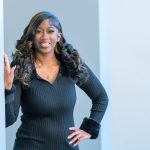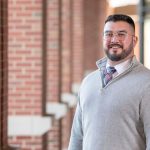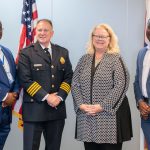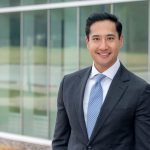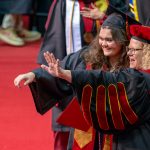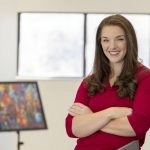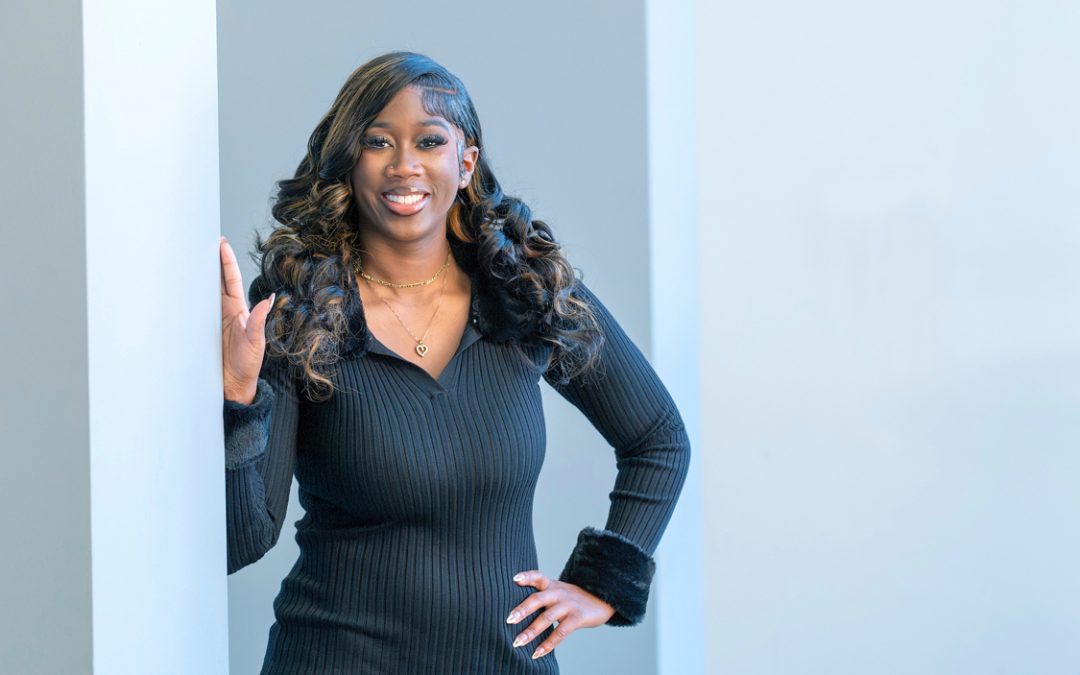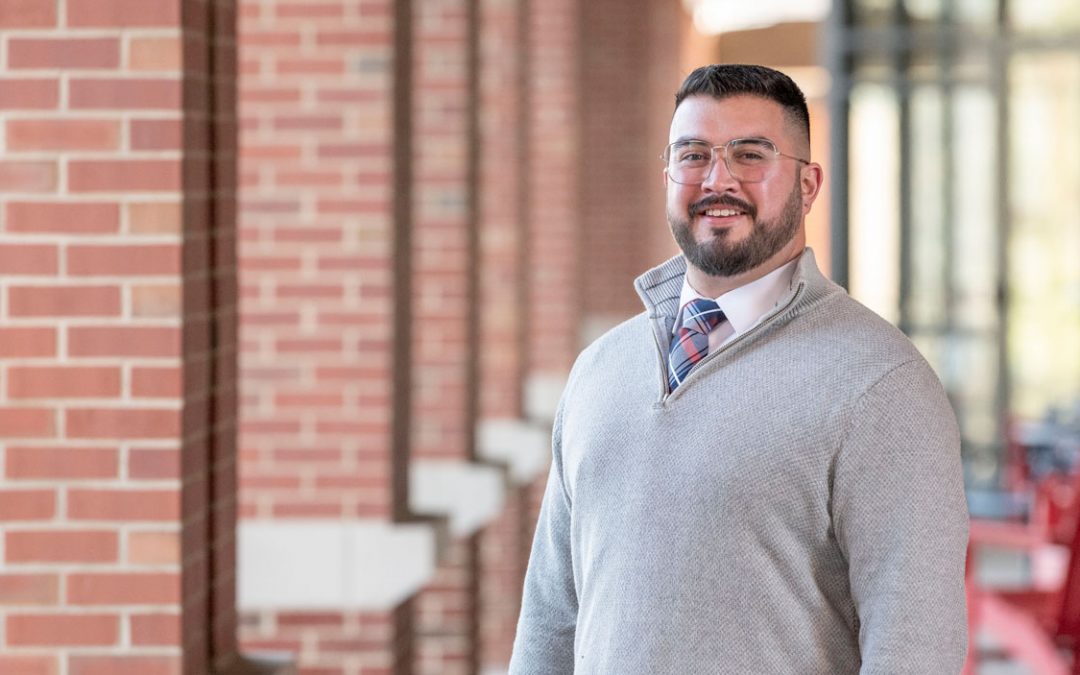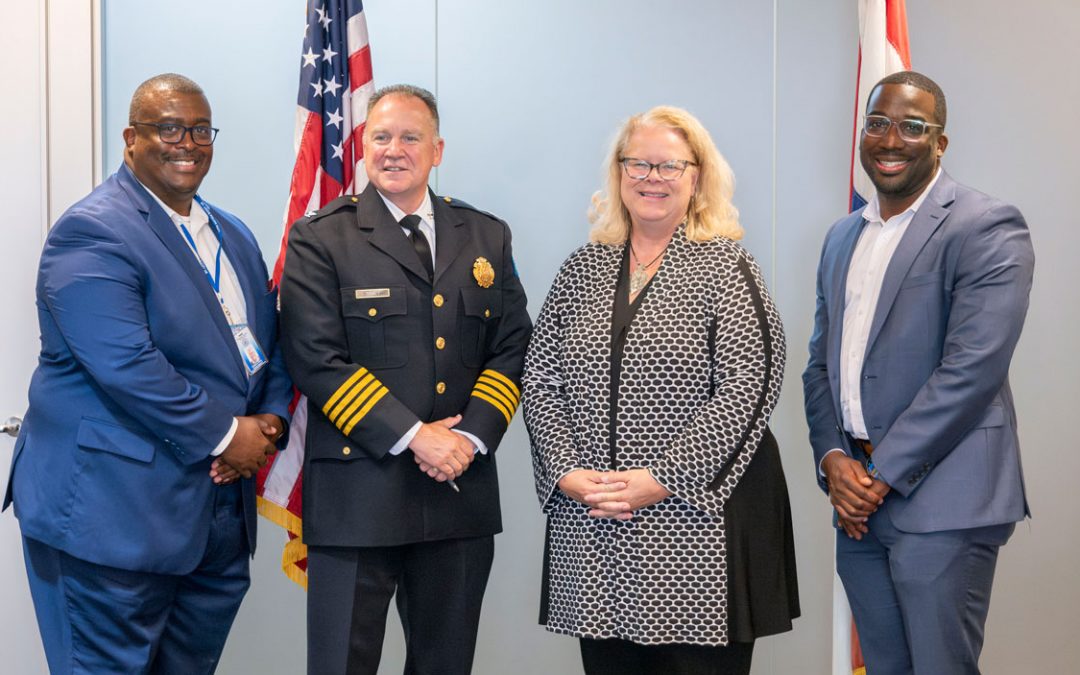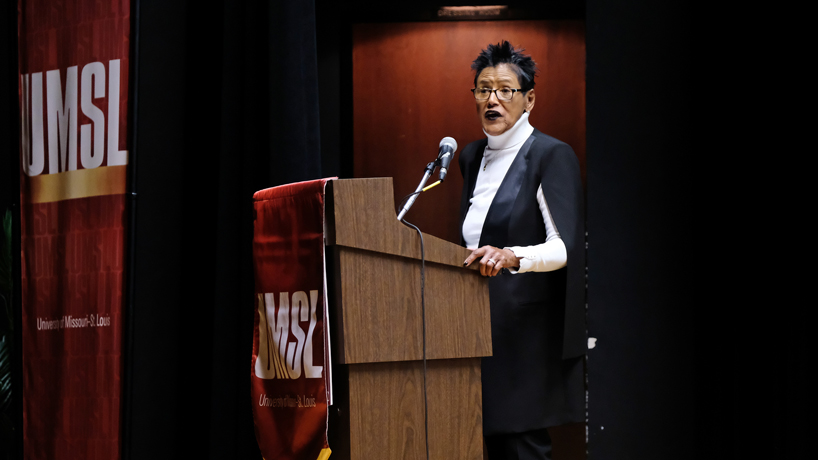
Former leader of the Black Panther Party Elaine Brown was welcomed to the UMSL campus on March 14 as the inaugural speaker for the Des Lee Urban Education Speaker Series on Race, Class and Community. (Photo by August Jennewein)
A video clip shared by musical artist Alicia Keys introduced activist, author and self-described revolutionary Elaine Brown to a lively and robust audience at the University of Missouri–St. Louis on March 14.
“You gotta study her up,” Keys said of Brown in the video. “Go ahead, look her up, find out what she is and who she is. She is a woman that has done so much.”
Put in the simplest of terms, what Brown has done is dedicate her entire life to what she calls “the freedom and liberation of not only black Americans, but all oppressed people.”
Brown took to the UMSL stage last Tuesday night as the inaugural presenter for the Des Lee Urban Education Speaker Series on Race, Class and Community – an initiative spearheaded by College of Education Professor Jerome Morris in collaboration with Director of Community Based Research Melissa Garcia. The event was cosponsored by UMSL’s Associated Black Collegians, Educators for Social Justice, the College of Education Dean’s Committee on Social Justice, Liberated Genius and the TEACH Society.
Perhaps best known as the first and only woman to lead the Black Panther Party (from 1974 to 1977), Brown has also authored influential texts about the black experience, including her memoir “A Taste of Power: A Black Woman’s Story” and “The Condemnation of Little B.” She cofounded the National Alliance for Radical Prison Reform and is the CEO of the non-profit organization Oakland & the World Enterprises, Inc., dedicated to launching and sustaining for-profit businesses for formerly incarcerated people.
From the podium in the J.C. Penney Auditorium on North Campus, Brown spoke to the theme of “Education for Liberation” by weaving tales from her own life’s work into a robust narrative of the history of black America that spanned from the days of slavery up to and including the present time. She interlaced the verdicts of historical court cases like Plessy v. Ferguson and Brown v. Board of Education with the words of Martin Luther King Jr., Marcus Garvey and others and used it all as context to perform a critique of the current state of affairs in America.
To address the need for the sweeping scope of her analysis – as well as issue a challenge to those who would rather leave the past behind – Brown quoted a former French prosecutor of Nazi collaborators who once answered public requests to let Holocaust atrocities lie by saying, “You are correct that we must turn the page of history, but we cannot turn the page, until we write the page.”
For Brown, writing that page has meant a lifetime of revolutionary acts both large and small.
First and foremost, it has meant sharing her experiences from the Black Panther years and lifting up the voices of those who are no longer here to speak for themselves.
“We have people in the Black Panther Party who were killed, who were my comrades and my friends. Fred Hampton, Bunchy Carter, George Jackson,” Brown said. “If nothing else, I’m going to tell their story. I’m going to continue to do that. I didn’t die, so I get to tell the story. That’s my duty.”
Among the many topics Brown spoke about, she also touched on her own experience with embracing identity.
“I really like being a woman. I like being a tough broad,” she told one student audience member who asked how the intersectionality of being female and being black has shaped her character.
“I like being black,” Brown said. “I realize that I didn’t have any choices about that, but I’m alright. It took a long time to be comfortable in me, and I’m alright.”
Brown also repeatedly acknowledged the interconnectedness of all people’s suffering.
“We are dependent on each other as human beings,” she said. “There has to be some human core, some moral core and ethical core to who we are or else we will continue to fight each other.
“And that’s not what we really want. We want to do other stuff. We want to talk about the universe and the stars and what’s really out there and how we connect with that. But we don’t have time for that if we have to grovel for food and housing and medical care. So what I want to see is the end of oppression of all people. That’s what I’m about. That’s what I keep fighting for.”
Towards the end of her presentation, more than two hours after she began, Brown finished by verbalizing something that the entirety of her life serves as an example of – a call to action.
“Don’t feel bad about your life,” she told the audience. “Don’t have done nothing. Don’t be irrelevant. Get out there and take your turn. And then when the last breath is drawn, you can be like, ‘Hey, I only had this much time, but I gave it something.’”
The next speaker affiliated with the Des Lee Urban Education Speaker Series will be Howard C. Stevenson, the Constance E. Clayton Professor of Urban Education at the University of Pennsylvania, whose topic will be “Promoting Racial Literacy in Schools.” Howard will speak at the Missouri History Museum at 7 p.m. on March 20. Charis Price, an assistant professor of early childhood and special education at UMSL, coordinated this collaborative effort among the Missouri History Museum, the Des Lee Endowed Professor of Urban Education, the Orthwein Endowed Professor for Lifelong Learning in the Sciences, and the Emerson Electric Endowed Professor for Technology and Learning.
For further information about the speaker series, contact Morris at morrisjer@umsl.edu.


